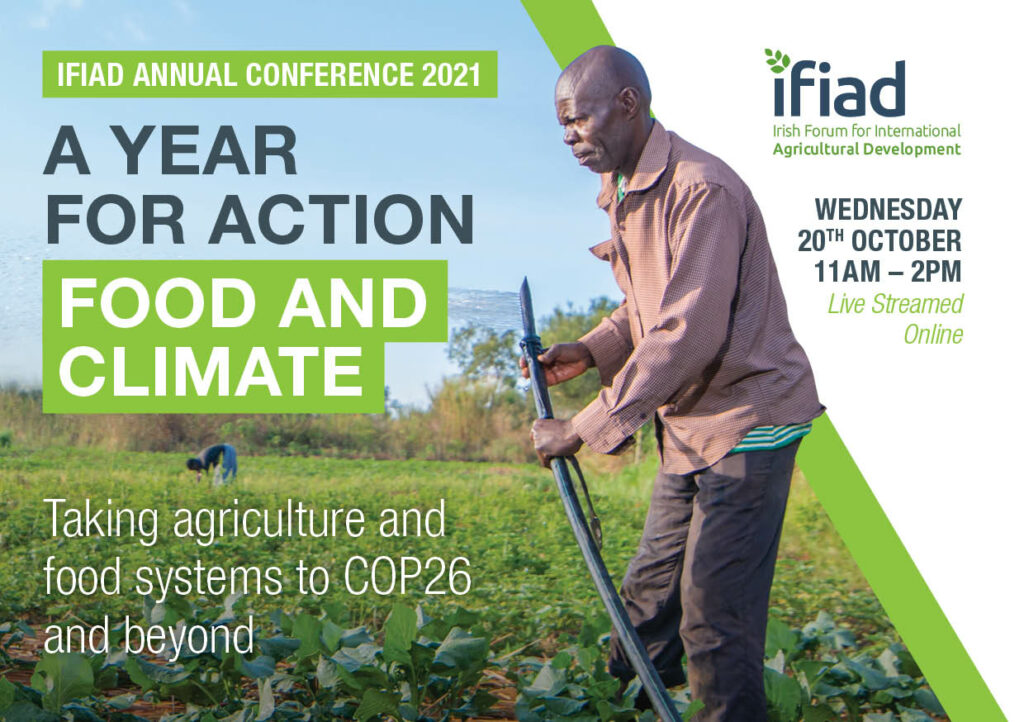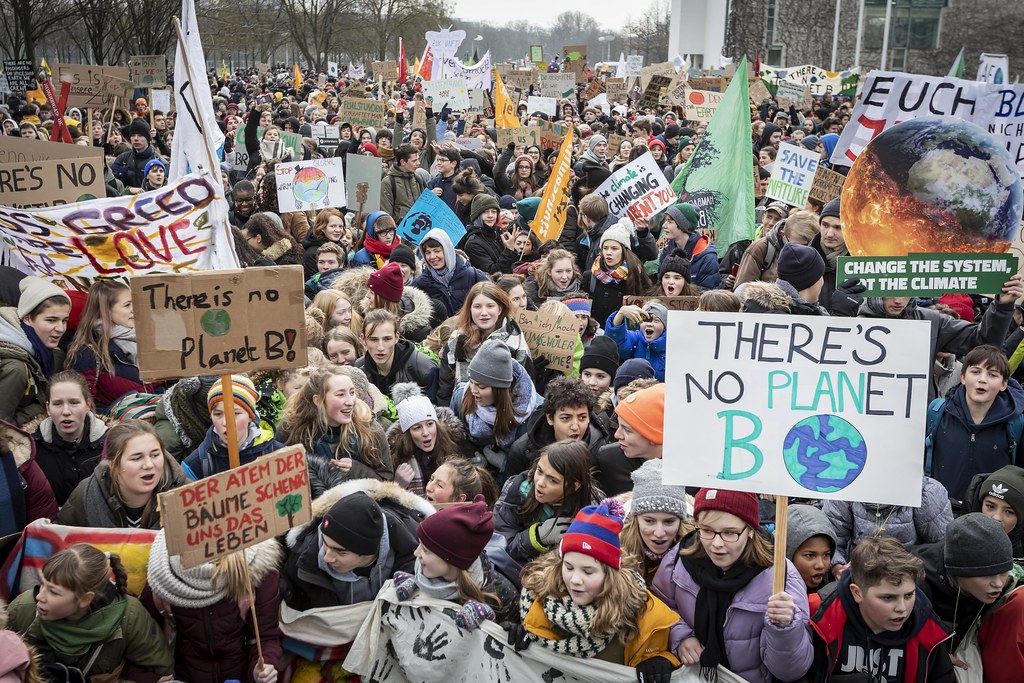
As a student in the MSc Climate Change, Agriculture and Food Security, I was able to attend the annual conference for the Irish Forum for International Agricultural Development (IFIAD). It was very enlightening to be able to hear from key people in the field and the range of opinions held regarding the topics of food security and agriculture and how climate change will affect it. The conference took place in a crossroads between the Food Systems Summit and COP26, discussing the outcomes of the Food Systems Summit and what is left to discuss for COP26.
One of the key issues that was repeated throughout the conference was the idea of trust among smallholder farmers. This remains a big issue, coming in the way of development within food systems, that was first addressed by Sinead Mowlds, an international development consultant and researcher. There is the consensus that there needs to be more transparency regarding the decision making process; policy formation, where finances are allocated and the influence large private sector companies have on these decisions. If farmers are going to implement new practices, there has to be incentives; finances are the most important way to show farmers that they are being supported. Farmers should also be trusted early on to be involved in the decision making process and to encourage engagement. They hold important first hand knowledge that is extremely beneficial to policy makers and other stakeholders.
This issue of engagement was repeated by Anna Maria Loboguerrero, who discussed the importance of ensuring youth involvement, as they are the ones who will be able to bring about significant behavioural change such as through the successful Fridays for Future movement led by Greta Thunberg. Policy makers and researchers need to get involved with youth movements, learn the language and give the youth a platform to be heard and have a say in important climate action decisions. Not only the youth but all marginalised groups must be included. The conference ended with the sentiment that, it appears that our governments are lacking a sense of urgency, holding them back from making critical transformational change. How do we work towards communicating this urgency to them?

An area of polarisation at the conference was that of power structures and the transformation of food systems. While it was agreed that policy is fundamental to bringing about change, the private sector still holds big stakes in the process through lobbying. While this is a be a big issue in much of the world, in countries with more unstable governments, this could have a more substantial impact. Additionally, while many of the speakers thought it was possible that we remain under a 1.5°C warming, there was a lack of consensus as to whether or not the neccessary action would be taken to ensure this globally.
The 2021 IFIAD conference highlighted the key issues facing food systems around the world and the numerous potential solutions. However, there was little concrete guidance as to how to implement these solutions. For example, putting more emphasis on the importance of climate smart agriculture as a means towards mitiagting climate change and its effects, building resilience within communities and bringing that information to farmers, helping them to implement these techniques. Solid goals and targets for governments and stakeholders have to be created and there should be consequences for countries that fail to meet these targets. These are some of the areas that I thought were missing from the 2021 IFIAD conference and that I hope to see discussed at the upcoming COP26.
Further Reading & Sources:
What is COP26?
https://www.euronews.com/green/2021/09/30/what-is-cop26-and-why-is-it-so-important